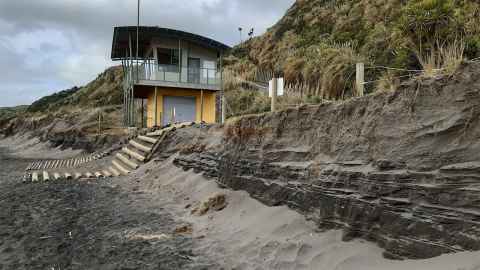Beaches won't go extinct but tough decisions ahead
28 October 2020
A claim half the world’s beaches could be extinct by the turn of the century is being disputed by an international team of coastal scientists including Associate Professor Giovanni Coco.

In March this year a group of European researchers published a study in one of the world’s top science journals, Nature Climate Change, suggesting half the world’s beaches would ‘drown’ by 2100 due to rising seas as a result of climate change.
Associate Professor Coco says that original study was critically examined by his research team, including scientists from France, the United States, South Africa, the United Kingdom and Australia, who concluded both the data and methodology in the original study were flawed.
Publishing in the same journal, he and colleagues say that, rather than disappear as sea levels rise, beaches will become narrower and eventually migrate landwards – if there is space to do so.
“Critical to the original research’s erroneous conclusions is the fact that, provided space is available, beaches will migrate landwards as sea levels rise and shorelines retreat,” he says.
But if something is blocking that retreat, such as hard cliff faces or man-made structures such as seawalls, then beaches are likely to disappear.
“In that case there simply isn’t anywhere for the beach to move to and it will eventually be squeezed and become more narrow due to pressure from the sea and will eventually disappear altogether.”
Lead author on the study, Professor Andrew Cooper from Ulster University, says coastal defence structures are the biggest obstacle to the natural process of beach retreat.
Coastal management around the world will have to take that into account and avoid putting buildings or coastal infrastructure in the ocean’s way, Associate Professor Coco says.
Most of the beaches in Aotearoa New Zealand will not disappear but land will be lost and need to be managed extremely carefully because the effect on communities will be significant.

“New Zealand has a very large amount of coastal land and we have to realise that hard times are coming and we will need to do a better job of preparing for the effects of sea level rise.
“Removal of structures which prevent inland retreat of beaches and using nature-based solutions to beach retreat, such as beach nourishment, may be the only methods available to us to safeguard some of our beaches.”
This latest study is published in Nature Climate Change.
Media contact
Anne Beston | Media adviser
DDI 09 923 3258
Mob 021 970 089
Email a.beston@auckland.ac.nz